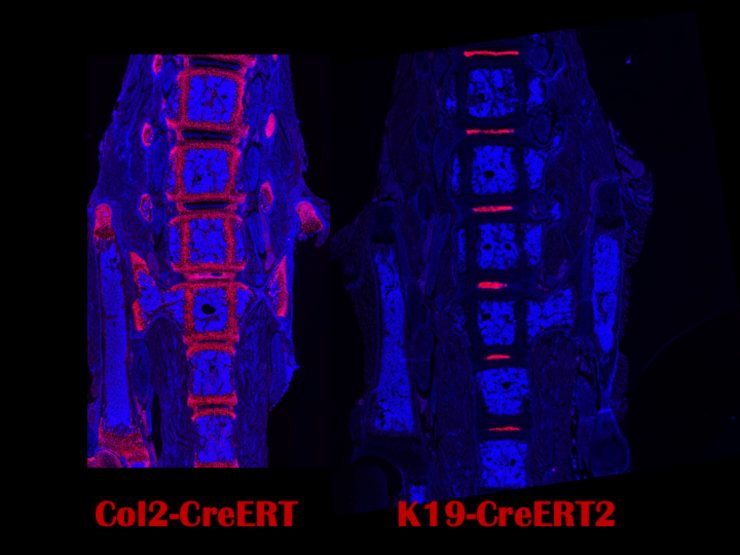About the Lab

Research in the Elefteriou laboratory is focused on understanding how bones form, grow, age and repair. Through the lens of the skeletal maladies associated with neurofibromatosis type 1 (NF1), we study mechanisms important for growth plate elongation, skeletal stem cell differentiation and function, bone mineralization and bone repair, we generate pre-clinical models and investigate new therapeutic targets for the prevention and improved management of NF1 pseudarthrosis and dystrophic scoliosis.
Another area of active research in the laboratory is about the interaction between autonomic nerves and bone cells, which is relevant to mechanisms of bone aging, osteoporosis and integrative tissue biology. Finally, we are interested in how cells in growth plates and intervertebral discs differentiate, function and survive despite the anoxic, hyperosmotic and low nutrient microenvironment they are exposed to.
Open Positions
If you are a student in an affiliated graduate program and are interested in rotating in our lab, please contact Dr. Elefteriou (florente@bcm.edu). Otherwise, you must first apply directly to one of the BCM graduate programs.
The Elefteriou Laboratory has an open position for a Postdoctoral Associate. Interested candidates should contact Dr Elefteriou.
Baylor College of Medicine is an Equal Opportunity/Affirmative Action/Equal Access Employer.
Active Funding
- RO1AR082536 (Elefteriou): 12/01/23 -11/30/28
- R01AR077949 (Elefteriou): 04/01/2021 - 03/31/2026
- R21AR083029 (Elefteriou): 04/01/2024 - 03/31/2025
- NCI R01CA183878 (Zhang, Elefteriou): 01/09/2014- 03/31/2025
Publications
View a listing of Dr. Florent Elefteriou's publications.








